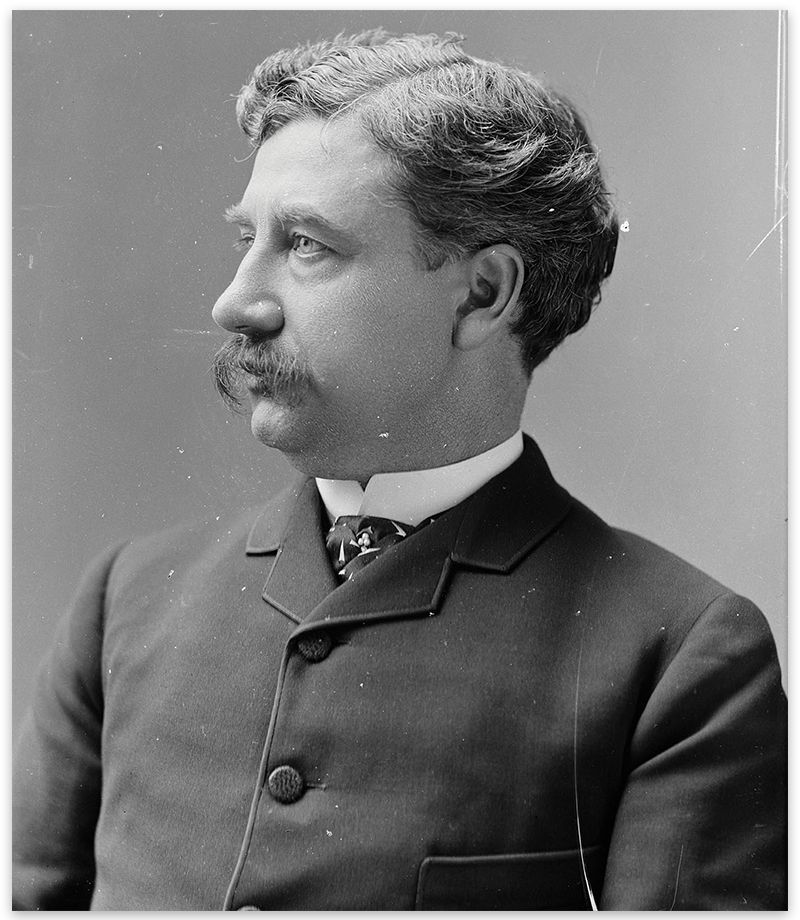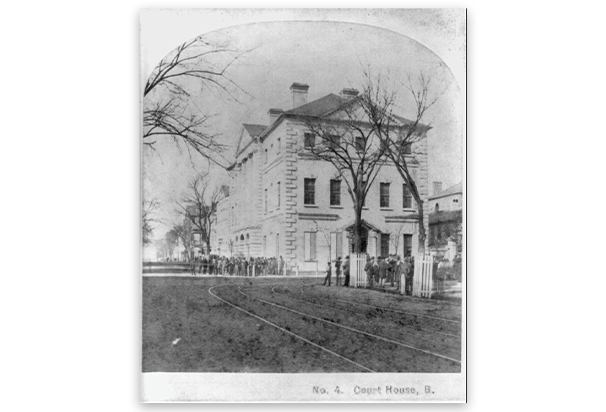
News & Courier editor Francis Warrington Dawson was shot by Dr. Thomas McDow, who was found not guilty of murder in the “Trial of the Century.”
The recent “Trial of the Century” that found Alex Murdaugh guilty of killing his wife and son, for all its attention-grabbing headlines, was not the first one to be so dubbed in the Lowcountry.
Back in 1889, reporters covering their century’s big story laid siege to the courthouse at the corner of Broad and Meeting streets, as a transfixed populace watched the trial of Dr. Thomas McDow, accused of killing Francis Warrington Dawson, born in Britain on May 17, 1840.
The victim, who was christened Austin John Reeks, had changed his name and nationality to fight for the Confederacy. After the war, he relocated to Charleston, married, took up residence on Bull Street, and became one of the town’s leading citizens. As editor of the News and Courier, his political positions raised his profile nationally.
Nearby on Rutledge Avenue was the home of McDow, who was not as respected as his neighbor. The married man, who also had a mistress, spied upon and waylaid Dawson’s Swiss governess, Hélène Burdayron.

The courthouse on Broad Street where the defense questioned Dawson’s character.
Hearing of his actions, Dawson rapped on McDow’s door one March afternoon and demanded his attention to Burdayron cease. McDow later testified that Dawson struck him with his cane, and then McDow shot him and tried to secrete the body. But he thought better of that and turned himself in to police. Salacious suggestions about the “French maid” as she was called despite her being Swiss were part of the trial’s testimony even as would-be-seducer McDow was portrayed by the defense as a common man protecting himself from an attacker who believed he was better than others. Dawson’s honor, dignity, and respectability were dispatched, as McDow, who was implicated in plots to sign false death certificates for insurance purposes and had contemplated murdering his wife, played up his need to defend himself.
The jury deliberated for a few minutes and found McDow not guilty. The next day, headlines from New York to San Francisco assailed and praised the verdict. Yet there were no real victories; McDow’s life spiraled and ended in suicide, and the Dawsons left for France. The story spawned at least two novels and one biography, just as a slew of books and films on the Murdaugh trial are sure to be forthcoming.